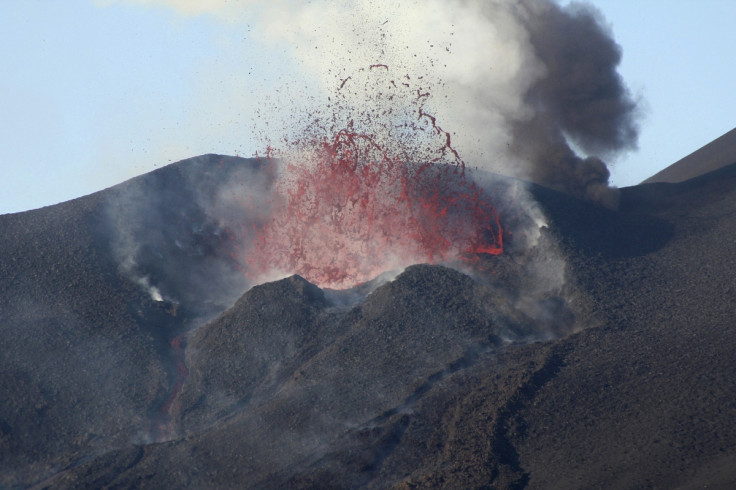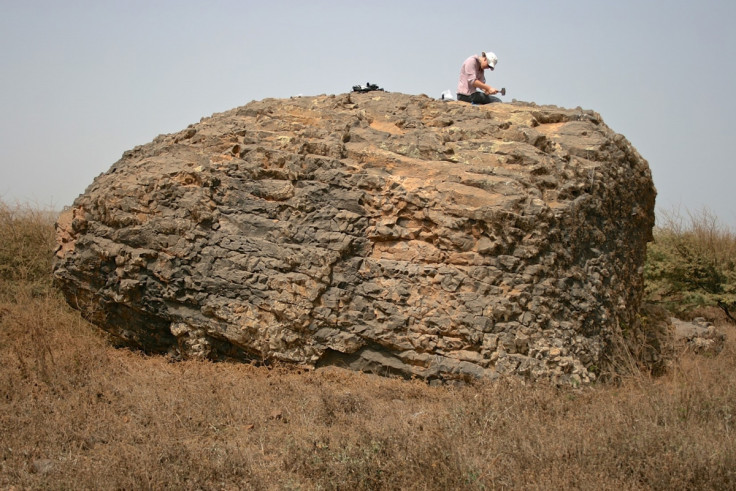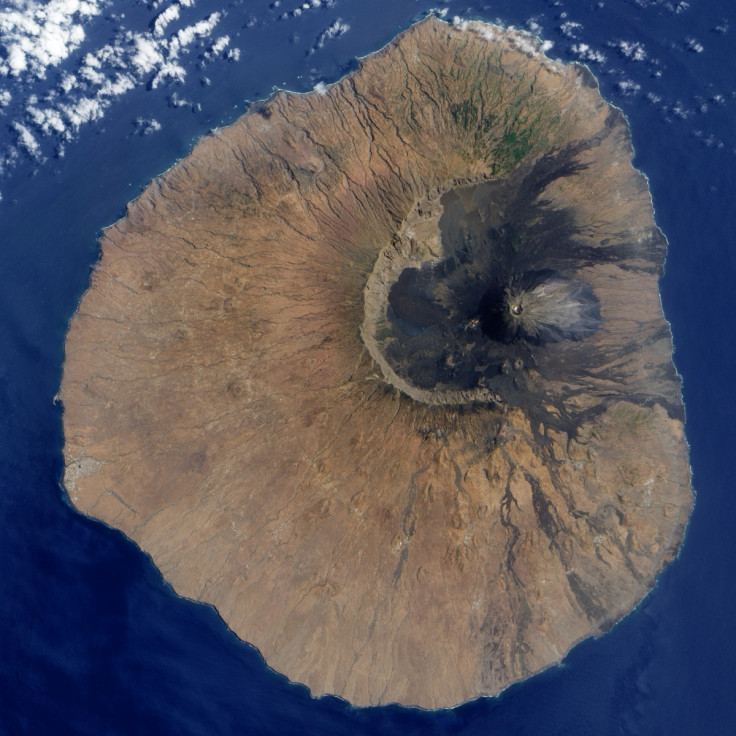Cape Verde: Catastrophic collapse of volcano produced 800ft mega-tsunami engulfing island 73,000 years ago

The catastrophic collapse of Fogo volcano on Cape Verde produced a mega-tsunami 800ft high (243m), engulfing the nearby Santiago Island around 78,000 years ago – and scientists have warned a similar collapse could happen again in the future.
Fogo volcano is one of the world's largest and most active island volcanoes, erupting around every 20 years. Scientists have long known it had collapsed in the past, but whether this was gradual or sudden, or what caused it remained unknown.
Scientists from Columbia University's Lamont-Doherty Earth Observatory have now provided evidence that the collapse was indeed sudden and catastrophic, producing a massive tsunami that had enough energy to carry huge boulders 2,000ft inland and nearly 650ft above sea level. Publishing their findings in the journal Science Advances, researchers used these unusual boulders as the basis for their study.
Lead author Ricardo Ramalho told IBTimes UK: "The first time I saw the boulders was back in 2007. At the time I was really puzzled by their origin, but I would never have guessed where they were from."
In 2011, some French scientists published work about tsunami deposits on Santiago at sea level – which made him start thinking that these other boulders could be related. Ramalho said: "After a few days of mapping, I had found more than 40 boulders and that's when I started to realise it was something big."

The boulders were huge, with some weighing up to 770 tonnes. The rock matches marine-type rocks found around the island's shoreline and are unlike anything else found on the terrain where they sit. "The main reason why those boulders are so striking is because they all correspond to rock types that only are exposed at the cliff face and lower slopes of the plateau," he said. The only way to have them is to have something that brought them from below up on to the plateau.

"And the only possible explanation is by the impact of a mega-tsunami. And of course when you realise that we start doing more field work and we started finding all those classical features of tsunamigenic sediments etc."
Scientists measured isotopes of the boulders to establish how long they had been lying in the open, with findings showing it was around 73,000 years – well within the range of when Fogo was thought to have collapsed. This, they say, shows the two events are linked.

After the initial collapse of the volcano, the tsunami generated would have reached 800ft in height. By the time it reached Santiago, the authors calculated (based on energy needed to move the boulders) that the wave would have been between 550ft and 650ft. "This particular case of the Cape Verdes is truly amazing not only because of the boulders but because you find everything - the sediments, all the classical features. It's one of those cases where the evidence is almost completely clear cut," Ramalho said.
Volcanoes are known to have collapsed around the world, but scientists disagree over whether this can happen very suddenly, as the new study suggests. One such paper was by Simon Day, from UCL, who sparked controversy by saying the Cumbre Vieja volcano in the Canary Islands could collapse suddenly to produce a mega-tsunami reaching 3,000ft in height. He said this would erase nearby islands and could still be as high as 300ft by the time it high west Africa and 150ft when it reached North and South America.
Discussing this study, Ramalho said: "I think I you have a large enough landslide theoretically you can produce a wave that size. There's no doubt in my mind about that. The main argument in Simon Day's work is not so much if a collapse could trigger a tsunami that high, it's whether the collapse is something that might happen again will be large enough to produce a wave that height."
He said it is possible Fogo could collapse suddenly again – but that the study should not be a warning that this could happen any time soon. Ramalho said: "In some of these islands, there was more than one collapse through geological timescales. I think that Fogo might one day collapse again. The question is when. It might never happen – but the potential energy is there, all the conditions to have another collapse are almost there, but we still don't know what triggers the collapse."
© Copyright IBTimes 2025. All rights reserved.






















